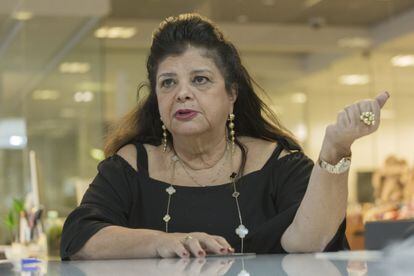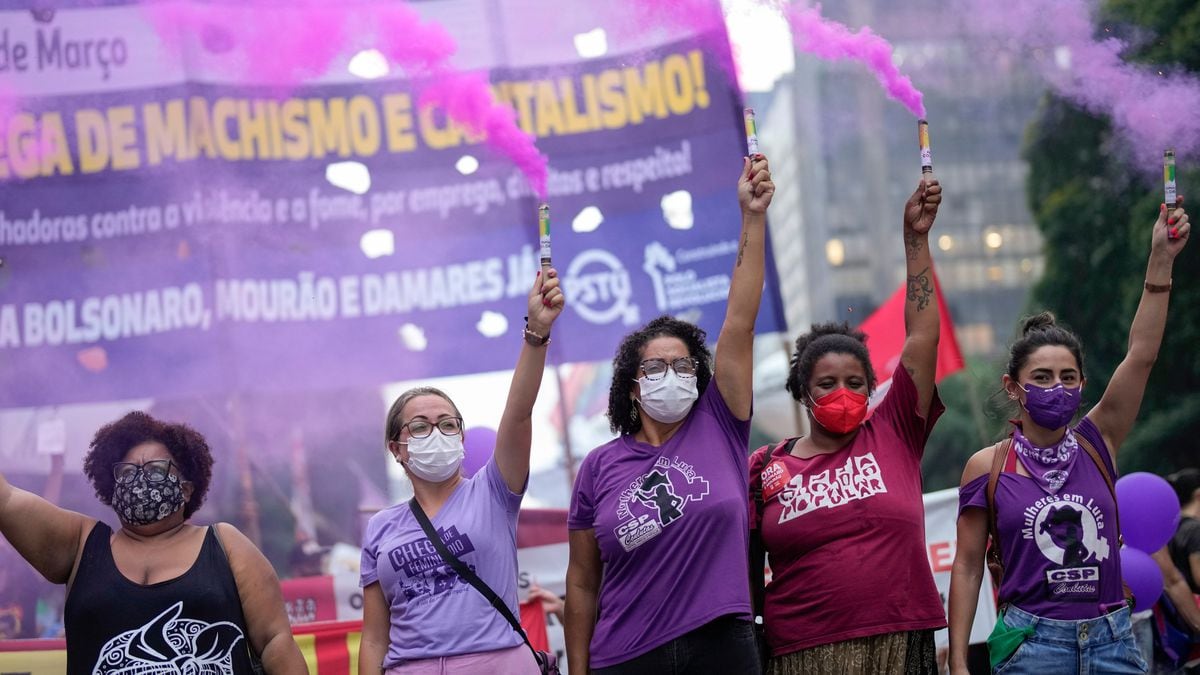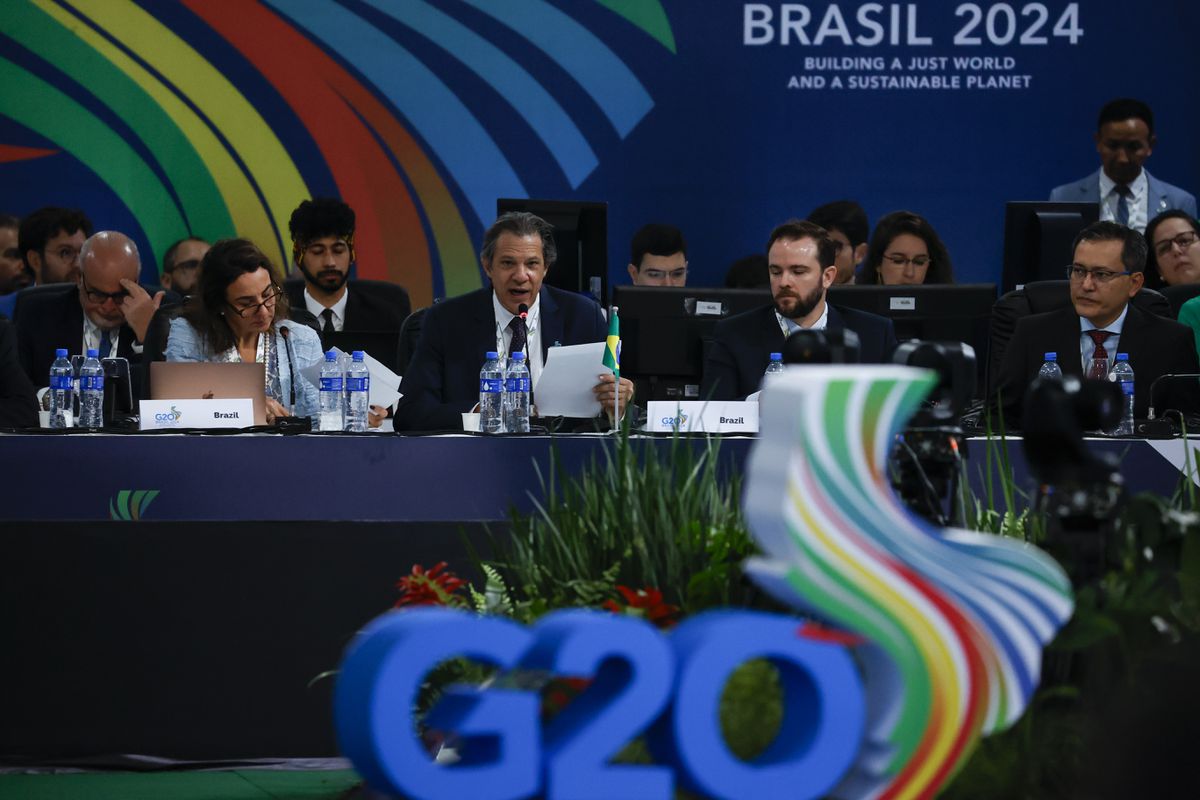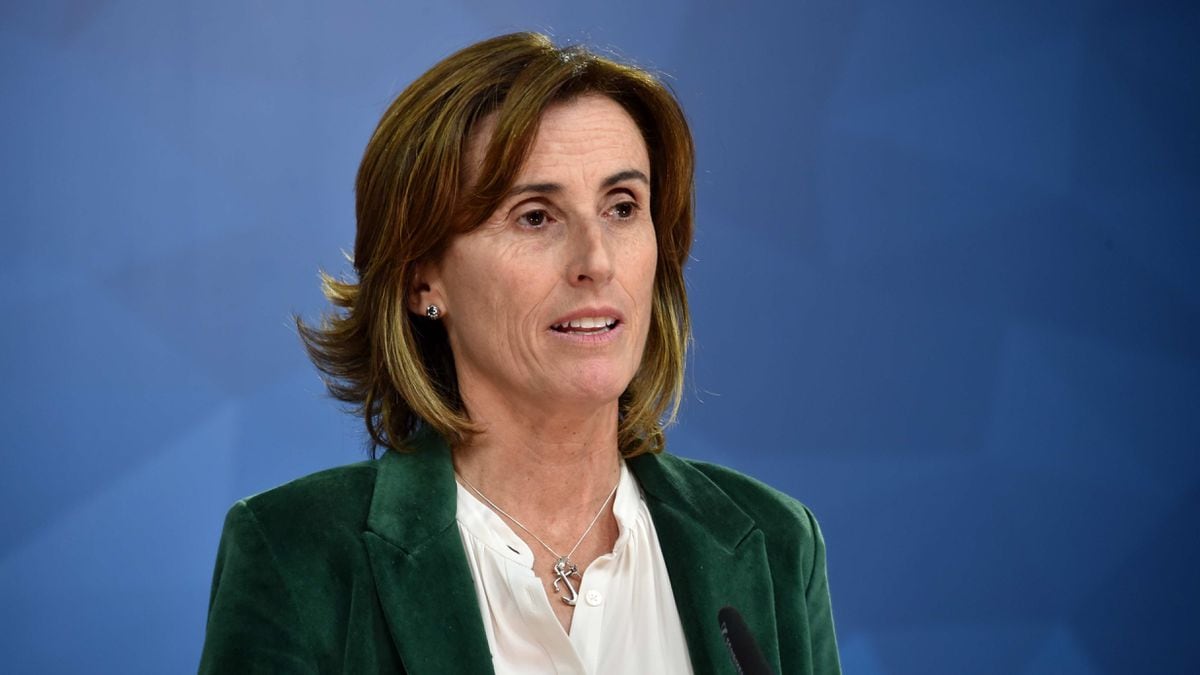Luiza Trajano, president of the board of directors of Magazine Luiza, a retail chain, at the company's headquarters in São Paulo. Rodrigo Capote (Bloomberg)
Luiza Trajano, 73, is rich, powerful and unusual. It's rare for a businessman as successful as his — he built a retail empire in Brazil from a small family store — to speak openly about political issues as thorny as systemic racism. That defends positive discrimination. Or that she confesses with absolute naturalness that until five years ago she had not realized that among the friends she invited to her birthday party every year there was not a black one. The richest woman in Brazil, according to
Forbes
, is like that, frank and spontaneous. She herself emphasizes that being the richest is as volatile as the stock market, where Magazine Luiza has been listed for a decade.
But the most amazing thing about Trajano is that he proudly displays his political awareness even now, in a Brazil polarized like never before.
At conferences, events or interviews, she enthusiastically defends her causes, be it combating racism, sexist violence or promoting gender equality.
He preaches and acts, inside and outside the company.
Time
listed her among the 100 most influential people in the world in 2021.
She studied law, but where she has always felt comfortable is selling.
She debuted as a clerk in the first store, opened by her aunt Luiza in 1957 in Franca, in the interior of São Paulo.
I was there a few days ago serving customers like every year at the beginning of the big sale.
Only daughter and only niece, she vibrates with political issues. To frequent speculation about her entry into politics, she bluntly answers that she does not want to, that she is non-partisan, pro-Brazil. Years ago, he rejected Dilma Rousseff's invitation to join a Workers' Party (PT) government. Now she would be the dream vice president for almost all the candidates for the next presidential elections, but she maintains her denial. Although, with the same conviction, she adds that she will continue her political battles as a citizen and businesswoman.
“I was always in favor of Bolsa Familia, and they said 'it belongs to the PT'.
And when I say that I am in favor of the privatization of the Post Office, they say that I am on the right”, he said in a television interview in 2020. Trajano, who on a Brazilian scale is an Amancio Ortega or a Jeff Bezos —fathers of Inditex and Amazon — was subjected to questions for more than an hour.
Exposure does not scare him.
Last year an initiative of his company, also known as Magalu, stuck its finger squarely into the wound from which Brazil festers daily.
The management announced a program to train internal managers open only to black or mestizo candidates.
“How!” asked many of his compatriots, outraged.
The controversy was tremendous.
They came to accuse her of reverse racism.
“We have to better understand what structural racism is.
I thought it was not racist, "she confessed before explaining that the 350 years of slavery left blacks without opportunities.
That someone with so much influence speaks on TV in those terms is extraordinary in a country where black people make up 54% of the population, although this is not reflected in Congress or in business executives.
Its presence in commercial advertising, on the other hand, is more like reality.
Trajano, who built a retail giant from a family store, at the company's headquarters in São Paulo. Rodrigo Capote (Bloomberg)
That controversy over the management course that did not admit white people did not frighten Trajano: "I am much more scared by a client who writes to tell me that he was poorly attended," he said in the aforementioned interview. And they write to him, go if they write to him, because his social networks are open to anyone who has a complaint. Instagram has become a complaint mailbox. Answer even if it is Christmas Eve and you have celebrated a family lunch worthy of the pages of Hello! Always ask the pissed off buyer for the details of the purchase and a contact telephone number. Often after asking their forgiveness. Because, as he explained in 2017 during a talk about the success of his company, the secret of a good business —a necessary requirement, but not enough— is to pamper customers and innovate.
Trajano still chairs the board of directors although in 2015 he left the reins of the company to the only male among his three children, Federico, 45 years old.
One daughter is dedicated to cooking, the other is a pedagogue.
Courtesy of confinement, the first year of the pandemic boosted Internet sales like never before for this company that already had virtual stores that it advertised on television in the 1990s and began selling online in the 2000s.
Magazine Luiza has 1,400 physical stores that sell everything from creams to casseroles or video cameras.
Its 40,000 employees start the week by singing the anthem before opening.
It is one of the rituals that he implemented to make a team (and country).
That's how unusual it is.
The battle for equality is waged through the Grupo Mulheres do Brasil, which brings together more than 100,000 of the most diverse members to encourage female participation in the construction of Brazil, a country that had a female president and has gender quotas but where parliamentarians are only 15%.
She says that she is often called "when looking for a woman" for any type of initiative.
Show sympathy.
She loves pearls, she wears intense carmine.
And although she sometimes talks like an activist, she laughs at the image she projects.
"Luiza is dedicated to the causes, some say, as if I were an NGO that does not give benefits," she said in that interview.
In 2021 it did poorly on the stock market but the previous year was really spectacular.
Of course, she declares herself concerned with the entrenched inequality and is in favor of income redistribution, but rejects that the great fortunes pay more taxes in this country where the tax burden of the poor is much greater than that of the rich like her.
“It's not about taxing, taxing, taxing and throwing in the (common) bucket, where you don't know where it goes.
We have to do it right,” she said, while defending the huge wave of donations made by businessmen during the pandemic and recalling that she led an initiative to avoid layoffs and another to buy vaccines.
Subscribe here to the EL PAÍS América newsletter and receive all the key information on current affairs in the region








/cloudfront-eu-central-1.images.arcpublishing.com/prisa/WNZM4636V5GXNFB25ZI5XAXJ2Y.jpg)
/cloudfront-eu-central-1.images.arcpublishing.com/prisa/2C5HI6YHNFHDLJSBNWHOIAS2AE.jpeg)



